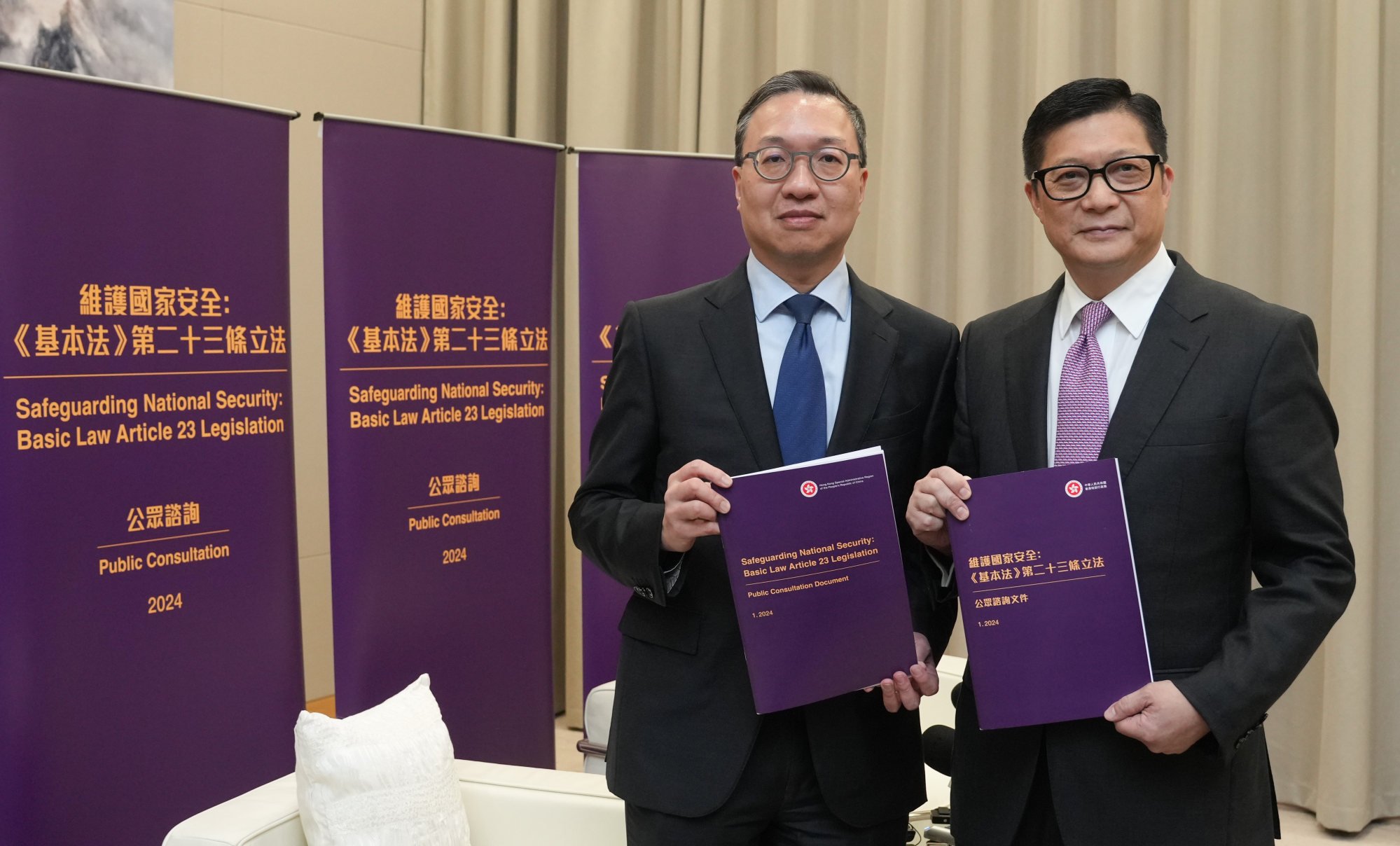No plans for Hong Kong to ban Facebook, YouTube under Article 23 security law, ministers say after media outlet sparks online fears
The international news outlet later corrected its original headline to highlight that the proposal had been suggested by members of the public.

“I can clearly and firmly say that the government has no intention to ban any social media,” Lam said at a Legislative Council joint panel meeting scrutinising the proposed legislation.
“We have to understand that social media is a tool and we will not put a stop to a tool’s existence. We are targeting the people who abuse or misuse this tool to spread speech that harms or jeopardises national security.”
Lam said Hong Kong was a society that enjoyed freedom of information and speech, with the two principles protected under the Basic Law, the city’s mini-constitution.
“Hong Kong is an international centre. Whether it is for finance or trading, it relies heavily on the free flow of information,” he said.
“These unique advantages must still be strengthened and safeguarded under the premise of protecting national security.”
The justice minister spoke in response to lawmaker Regina Ip Lau Suk-yee’s remarks that some of her overseas friends asked after reading the news whether Hong Kong would ban some social media platforms.
She accused such articles of “scaremongering” and asked officials to condemn the media outlet.
Public interest defence, tougher penalties proposed for Hong Kong security law
The Hong Kong government unveiled plans to enact the legislation, mandated by Article 23 of the Basic Law in January. The law will introduce or revamp five new types of new offences – treason, insurrection, sabotage, external interference, and theft of state secrets and espionage.
Security minister Tang said the government had noticed that whenever authorities published certain information, some people would extract one or two sentences without context to mislead the public.
“I believe Hongkongers have discerning eyes and are able to identify fake news that attempts to mislead and intimidate the public,” he said.
According to authorities, 98.6 per cent of the 13,489 submissions it received during the consultation exercise that ended last Wednesday were in support of the proposal. It added that some of those who opposed the legislation were “anti-China forces”.